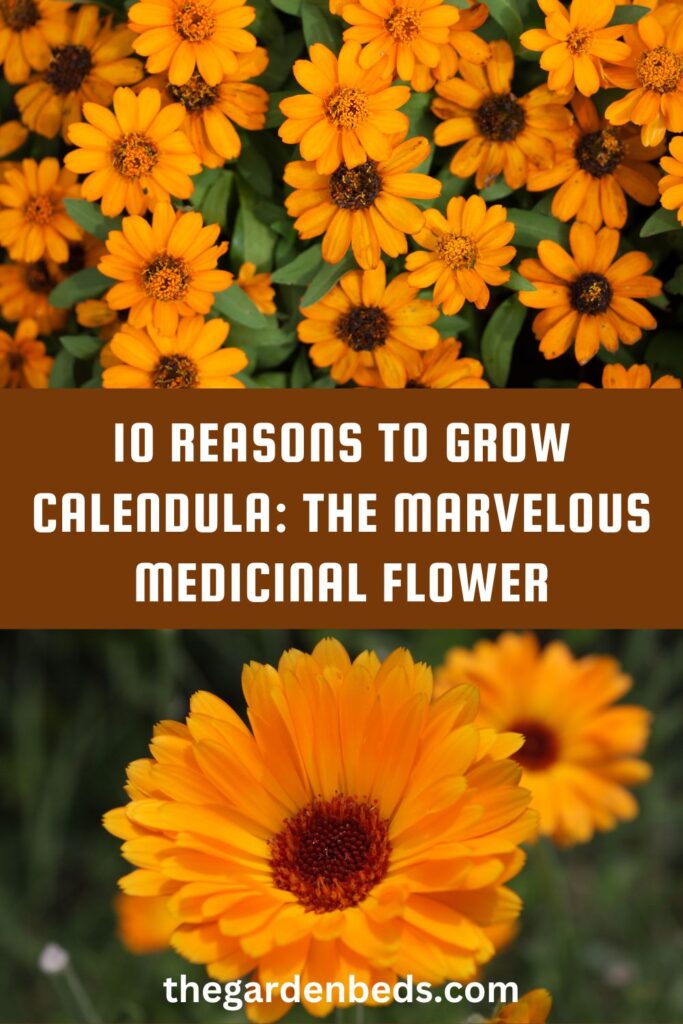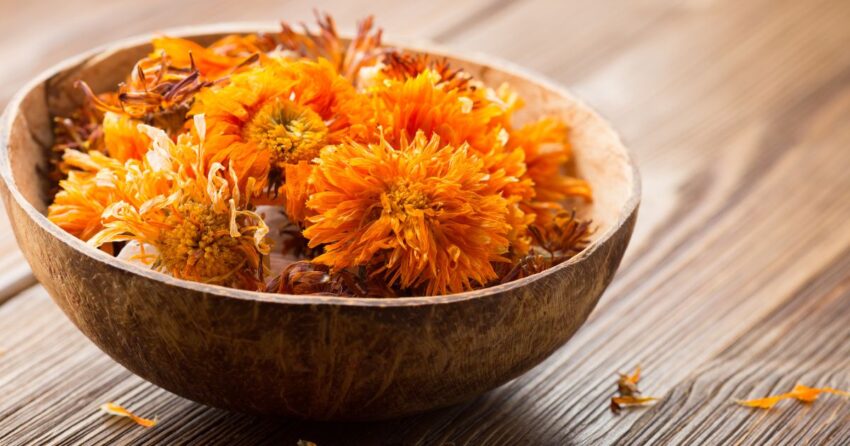Calendula, often referred to as “marigold,” is a vibrant and versatile flower that has been cherished for centuries. While its sunny blooms can brighten any garden, calendula offers far more than just aesthetic appeal. This resilient plant boasts a wide array of medicinal, culinary, and cosmetic uses. In this article, we’ll delve into the top 10 reasons why you should consider growing calendula in your garden and discover the many benefits this incredible herb has to offer.
-
Healing Properties
Calendula is renowned for its remarkable healing properties. Its petals contain powerful compounds, including flavonoids and triterpenoids, which have anti-inflammatory, antimicrobial, and antioxidant effects. These properties make calendula a valuable addition to herbal remedies and natural skincare products, aiding in the treatment of wounds, burns, rashes, and skin irritations.
-
Skin Care Marvel
Calendula’s soothing and moisturizing qualities make it a sought-after ingredient in skincare products such as creams, lotions, and oils. Its anti-aging benefits, ability to promote collagen production, and gentle nature make it suitable for all skin types, including sensitive and delicate skin.
-
Culinary Delight
Beyond its medicinal properties, calendula petals are edible and can add a burst of color and flavor to salads, soups, and teas. Their slightly peppery taste resembles saffron, making calendula a cost-effective alternative for saffron seasoning.
-
Herbal Tea
Calendula tea offers numerous health benefits. It aids in digestion, relieves menstrual discomfort, and acts as a mild sedative. Sipping on a cup of calendula tea can also help reduce stress and anxiety, making it a valuable addition to your herbal tea collection.
-
Immune System Support
Calendula contains compounds that boost the immune system, helping the body ward off infections and illnesses. By incorporating calendula into your daily routine, you can fortify your immune defenses naturally.
-
Garden Pest Deterrent
Calendula has the unique ability to repel certain garden pests, including aphids and nematodes, making it an eco-friendly addition to your garden. Planting calendula near your vegetables and other susceptible plants can help protect them from destructive insects.
-
Pollinator Magnet
The bright, colorful blooms of calendula are a magnet for pollinators such as bees and butterflies. By growing calendula in your garden, you’ll not only enjoy its beauty but also contribute to the well-being of local pollinators, which play a vital role in food production.
-
Low-Maintenance
Calendula is an easy-to-grow plant that thrives in various soil types and climate conditions. Whether you’re a seasoned gardener or a novice, calendula is a forgiving plant that requires minimal care, making it an ideal choice for gardeners of all skill levels.
-
Companion Planting
Calendula’s pest-repelling properties extend to its neighboring plants. By strategically planting calendula alongside your other garden crops, you can create a natural barrier that deters unwanted insects and promotes a healthier garden ecosystem.
-
Medicinal Garden Staple
Calendula’s versatility and medicinal benefits make it a valuable addition to any medicinal herb garden. From making herbal salves and tinctures to using it in aromatherapy, calendula’s wide range of applications makes it an indispensable herb for holistic health enthusiasts.
Conclusion
Incorporating calendula into your garden can provide you with an abundance of benefits, from healing properties and skincare solutions to culinary delights and eco-friendly pest control. This remarkable herb has been cherished for centuries for good reason, and by cultivating it in your garden, you can experience the many rewards it has to offer. Whether you’re a seasoned gardener or just starting, consider adding calendula to your garden for a touch of beauty and a wealth of natural goodness.


